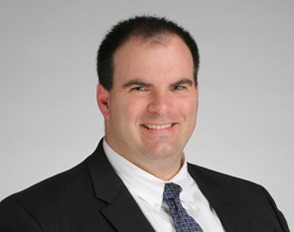HHS Proposes Drug Rebate Reform to Deliver Drug Cost Savings Directly to Patients
Earlier this month, the Department of Health and Human Services (“HHS”) and Inspector General published a proposed regulation in the Federal Register aimed at lowering the cost of prescription drugs and providing discounts directly to patients. If passed in its current form, the proposed regulation would amend the Discount Safe Harbor under the federal Anti-Kickback Statute (“AKS”) by explicitly excluding rebates for prescription drugs offered by drug manufacturers to pharmacy benefit managers (“PBMs”)1, Part D plans, and Medicaid managed care plans. The proposed regulation also introduces two new safe harbors intended to (i) protect discounts offered by drug manufacturers at the point of sale provided that the discount is fixed, set in advance, paid directly to the pharmacy, and the discount is reflected in the patient’s out-of-pocket cost, and (ii) protect certain fixed fee service arrangements between drug manufacturers and PBMs, including but not limited to data monitoring, data management, and medical training.
Under the current system, drug manufacturers and PBMs secretly negotiate rebate amounts based upon a percentage of the drug’s list price. In order to increase the amount of the rebate, the drug manufacturer will actually increase the cost of the drug, which in turn increases patients’ out-of-pocket costs, especially for senior citizens. According to an HHS Fact Sheet, the difference between the list price of a drug and the net price after rebate is between 26 and 30 percent. These savings, however, do not typically result in lower out-of-pocket expenses for patients, nor do they reduce patients’ cost-sharing for particular drugs. This rebate system greatly disadvantages patients who are responsible for some portion of the cost of their medication, whether it be their deductible payment or a cost-sharing percentage of the drug, as their share of the cost is based upon the drug list price and not the net price of the drug after deducting the rebate. Accordingly, under the proposed regulation, the new safe harbor protections would strongly incentivize drug manufacturers to offer discounts that will directly benefit patients by lowering their costs at the pharmacy counter.
One of the main effects of the proposed regulation is to create greater transparency in the country’s current rebate-driven system that is inundated with high prescription drug prices and backdoor deals. According to HHS, by replacing the current safe harbor protection for opaque rebate arrangements between drug manufacturers and PBMs, with fully transparent discounts offered directly to the beneficiary, lower Part D spending for Medicare beneficiaries as a whole is expected, as the potential out-of-pocket savings will likely be greater than any price increase to insurance premiums. It is hoped that these proposed changes will alleviate the sticker shock that millions of Americans experience at the pharmacy counter every day.
HHS and the Inspector General are currently accepting comments regarding this proposed regulation through April 8, 2019, and if finalized, the regulation would go into effect January 1, 2020.
Please consult with Rebecca J. Maziarz, Jeffrey R. Hantz, or Gabrielle M. Carbonara at Dickie, McCamey & Chilcote, P.C. They can answer any questions about how these laws may apply to your business.
 Rebecca J. Maziarz 412-392-5642 rmaziarz@dmclaw.com |  Jeffrey R. Hantz 412-392-5264 jhantz@dmclaw.com |  Gabrielle M. Carbonara gcarbonara@dmclaw.com |
Ms. Maziarz was the Director of Medical Information Management for two Western Pennsylvania hospitals, and one in West Virginia. Additionally, she served as a Long Term Care Consultant to area nursing homes. Her background in the healthcare industry provides clients with an invaluable resource and unique perspective into the ever-evolving healthcare landscape.
__________________________
1Pharmacy benefit managers, or PBMs, are third-party entities that manage prescription drug benefits for health plans.
